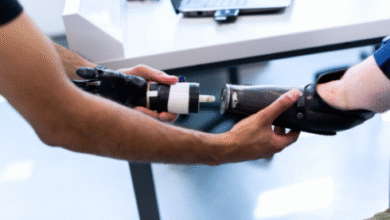How to Prepare for Your Master’s Degree in Bulgaria – A Step-by-Step Guide

Pursuing a master’s degree is an exciting venture that can significantly enhance your academic and professional prospects. For students considering studying in Bulgaria, preparing effectively for this journey is crucial to ensuring a smooth transition and a successful academic experience. This step-by-step guide will provide you with essential tips on how to prepare for your master’s degree in Bulgaria, covering everything from academic readiness to cultural adaptation.
Step 1: Research Your Program
Before you embark on your journey, it’s essential to thoroughly research the master’s program you intend to pursue. Understand the curriculum, faculty, and specific requirements of your chosen program. Take note of the following:
- Course Structure: Familiarize yourself with the subjects offered, as well as any specializations or electives available within the program.
- Faculty Credentials: Look into the qualifications and research interests of the faculty members, as this can influence your academic experience and opportunities for mentorship.
- Accreditation: Ensure that the university and program are accredited and recognized, which is vital for the validity of your degree.
By understanding what to expect from your program, you can better prepare yourself academically and set clear goals for your studies.
Step 2: Language Preparation
While many programs in Bulgaria are offered in English, it’s beneficial to learn some basic Bulgarian phrases. Familiarizing yourself with the local language will enhance your ability to communicate with locals, navigate daily life, and build connections. Here are some language preparation tips:
- Enroll in a Language Course: Consider taking a Bulgarian language course, either online or in person, to build a foundational understanding of the language.
- Practice with Language Apps: Utilize language-learning apps like Duolingo or Babbel to practice vocabulary and pronunciation.
- Engage with Native Speakers: If possible, connect with Bulgarian speakers or fellow students who can help you practice conversational skills.
Being able to communicate in Bulgarian, even at a basic level, can enrich your experience and help you feel more integrated into the local community.
Step 3: Organize Your Documentation
Ensuring you have all necessary documentation in order is vital for a smooth transition to studying in Bulgaria. Key documents include:
- Admission Letter: Keep your acceptance letter from the university easily accessible, as it may be required for visa applications.
- Visa Application: If you are not an EU citizen, you will likely need to apply for a student visa. Gather the necessary documents, including proof of financial stability, health insurance, and accommodation.
- Academic Records: Ensure you have official transcripts, diplomas, and any other academic documents required for enrollment.
Organizing these documents well in advance will save you time and stress as your departure date approaches.
Step 4: Financial Planning
Studying abroad involves various expenses, so it’s crucial to establish a budget and plan your finances accordingly. Consider the following:
- Tuition Fees: Research the cost of tuition for your chosen program and ensure you have a plan to cover these costs.
- Cost of Living: Understand the cost of living in Bulgaria, including accommodation, food, transportation, and leisure activities. Cities like Sofia may have a higher cost of living compared to smaller towns.
- Scholarships and Financial Aid: Explore scholarship opportunities specifically for international students studying in Bulgaria. Many universities offer financial aid, and external organizations may also have grants available.
Creating a detailed financial plan will help you manage your expenses and avoid any surprises once you arrive in Bulgaria.
Step 5: Arrange Accommodation
Finding suitable accommodation is an essential part of preparing for your master’s degree. Consider your options early:
- University Housing: Check if your university offers on-campus accommodation. This can be a convenient option that also provides an opportunity to meet fellow students.
- Private Rentals: Explore local rental listings for apartments or shared accommodations. Websites like Airbnb or local real estate agencies can provide insights into available options.
- Consider Location: Choose accommodation that is conveniently located near your university or accessible by public transportation to minimize commute times.
Securing your living arrangements ahead of time will ensure a smooth transition when you arrive in Bulgaria.
Step 6: Connect with Fellow Students
Building a support network before arriving in Bulgaria can significantly enhance your experience. Consider the following strategies:
- Join Online Groups: Look for social media groups or forums specifically for international students or Francophone students in Bulgaria. These platforms can provide valuable insights and allow you to connect with fellow students.
- Attend Orientation Events: Once you arrive, participate in orientation sessions hosted by your university. These events provide a great opportunity to meet peers, learn about campus resources, and ask questions about your new environment.
Establishing connections with other students can help you navigate your new life and create a support system.
Step 7: Embrace Cultural Adaptation
Finally, be open to embracing the cultural differences you will encounter while studying in Bulgaria. Understanding and respecting local customs, traditions, and social norms will help you adapt more easily. Here are a few tips:
- Research Bulgarian Culture: Familiarize yourself with Bulgaria’s history, traditions, and social etiquette. Understanding cultural nuances will enhance your interactions with locals and peers.
- Participate in Local Events: Engage in cultural activities, festivals, and community events to immerse yourself in the local culture and make new friends.
Embracing cultural adaptation will enrich your overall experience and broaden your global perspective.
Preparing for a master’s degree in Bulgaria is an exciting journey filled with opportunities for personal and academic growth. By following this step-by-step guide, you can effectively navigate the transition and set yourself up for success. From researching your program to embracing cultural adaptation, each step plays a crucial role in ensuring a fulfilling and rewarding educational experience. Embrace the adventure that awaits you in Bulgaria, and make the most of this unique opportunity to further your studies in a vibrant and culturally rich environment. Private schools in Sofia and private schools in Varna are useful for the elderly, too.


